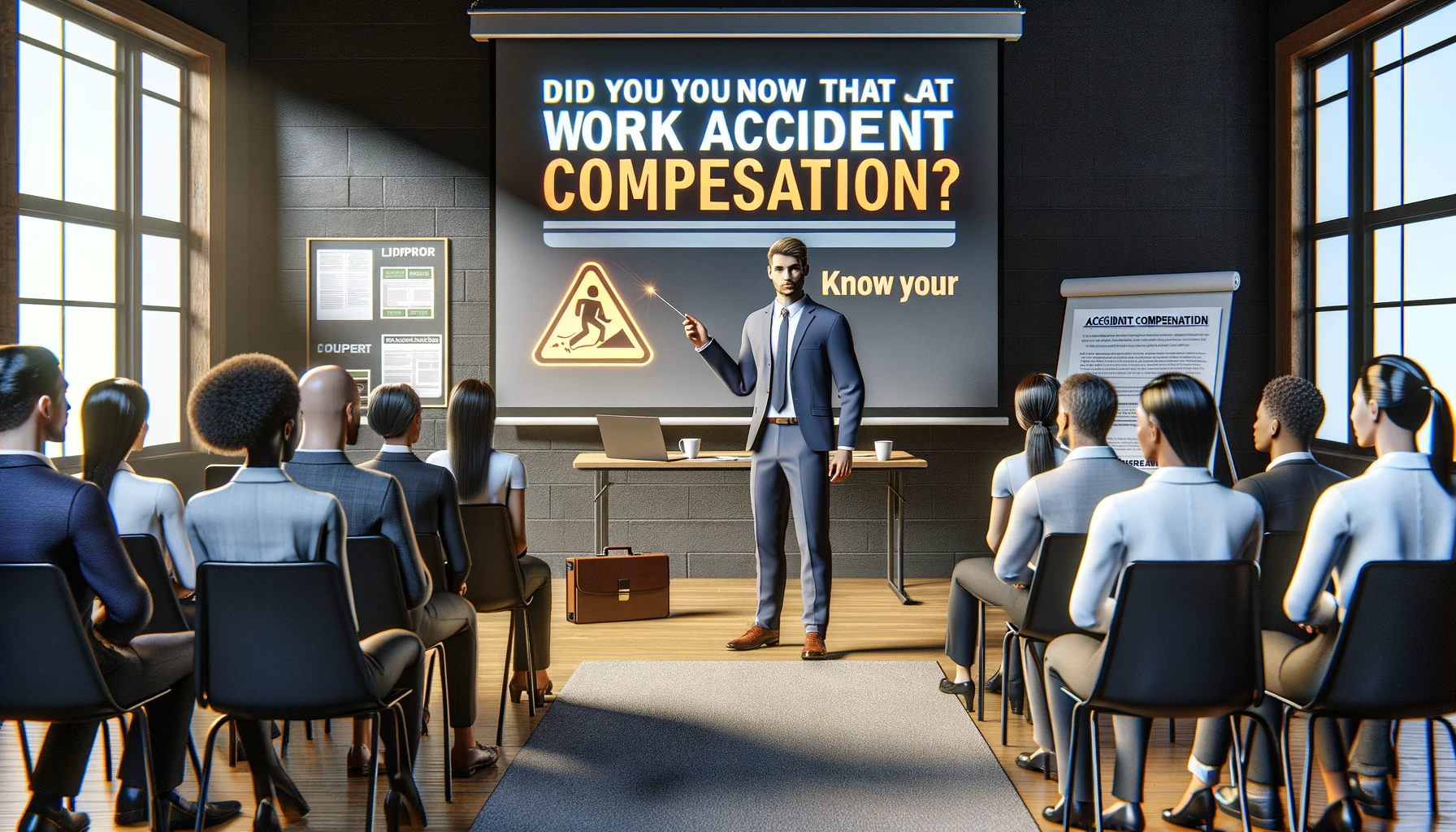Have you ever found yourself in a situation where a regular day at work turned into a nightmare due to an unexpected injury? It's a scenario no one wants to imagine, but workplace accidents are a stark reality for many. Understanding your rights and the steps to take following an on-the-job accident can be the difference between feeling helpless and being empowered. Let's dive into what you need to know about claiming compensation after a workplace accident.
What Constitutes a Workplace Accident?
A workplace accident is any incident that occurs in the course of employment, leading to physical or mental injury. From slips and falls to equipment malfunctions, the range of what can happen is wide. Recognizing the various forms these incidents can take is the first step in understanding your rights to employee injury compensation.
Worker's Compensation Rights
Workers' compensation is a form of insurance that provides wage replacement and medical benefits to employees injured in the course of employment. As an employee, you have rights under workers' comp laws that are designed to protect you from the financial strain of work-related injuries. Knowing these rights is crucial when navigating the path to workplace injury settlements.

Eligibility for Work Injury Claims
Not every scratch qualifies for a work injury claim. There's a set of criteria that determines eligibility, including the nature of the injury and its connection to your job duties. Industrial accident claims typically cover injuries that are directly related to an employee's work responsibilities.
The Claim Process for Workplace Incidents
The workplace incident claim process can seem daunting, but it's a necessary step toward securing your job-related injury benefits. Reporting workplace accidents immediately to your employer is the starting point, followed by a detailed documentation process. This is where understanding the workers' comp claim procedure becomes invaluable.
Employer Liability for Injuries
Employers have a legal obligation to maintain a safe work environment. When they fail to do so, and that failure leads to an accident, they may be held liable. Compensation for injured workers often hinges on proving that workplace safety violations contributed to the incident.
Workplace Injury Settlements and Compensation
The compensation you receive can include medical expenses, lost wages, and sometimes, damages for pain and suffering. Each work accident insurance claim is unique, and various factors will influence the settlement you might expect from either your employer's insurance or through a work injury lawsuit.
Job-Related Injury Benefits and Insurance Claims
Navigating the maze of employee accident insurance claims can be complex. Understanding the benefits you're entitled to, such as medical care, rehabilitation, or disability payments, is a significant part of the recovery process after a workplace incident.
Legal Rights After an Accident at Work
After a workplace accident, you may need to explore your legal rights. Seeking advice from an attorney who specializes in occupational hazard lawsuits can provide clarity on the merits of your case and the potential for additional compensation beyond what workers' comp offers.
Challenges in Claiming Compensation
Filing a claim for work injury compensation is not always straightforward. You may encounter challenges, from uncooperative employers to skeptical insurance adjusters. Being prepared with a thorough understanding of your rights and the necessary documentation can make all the difference.

Conclusion
Suffering an injury at work can be a life-altering event, but knowing your rights can help you navigate the road to recovery and compensation. Don't let the complexity of the system deter you from claiming what you're entitled to. Stand up for your rights, and don't hesitate to seek professional guidance to ensure you receive the full benefits of your workplace accident insurance claim.
Look for an attorney who has the right legal resources for your legal needs.
Contact us here on the Warmuth Law website or through our hotline 888-517-9888.
Frequently Asked Questions (FAQ's)
Can I claim compensation if the workplace accident was partly my fault?
Yes, you might still be eligible for compensation even if you were partially at fault for the accident. Workers' compensation is typically a no-fault system, meaning that you can receive benefits regardless of who was at fault. However, the specifics can vary by jurisdiction, so it's important to consult with a legal expert to understand your rights in this situation.
In some cases, the amount of compensation might be reduced if your negligence contributed to the accident. It's essential to provide an accurate account of the incident and seek legal advice to ensure you're treated fairly throughout the claim process.
What should I do immediately after a workplace accident?
The first thing you should do is seek medical attention, even if the injury seems minor. Not only is this important for your health, but medical records serve as crucial evidence for your claim. After addressing your health, report the incident to your employer as soon as possible. This report should be in writing and include all the details of the accident and the injuries sustained.
It's also wise to document everything related to the accident, including witness statements and photos if possible. Keep a record of all medical treatments and any communication with your employer about the incident. This documentation will be vital when you file your work injury claim.
How long do I have to file a work injury claim?
The time limit for filing a workers' compensation claim, known as the statute of limitations, varies by state. Generally, it ranges from one to three years from the date of the accident or the discovery of the injury. It's important to file your claim as soon as possible to avoid missing the deadline.
If you're unsure about the time frame, consult with a workers' compensation attorney or your state's workers' comp board. They can provide you with the specific time limits applicable to your case and help ensure that your claim is filed promptly.
What if my employer doesn't have workers' compensation insurance?
In most jurisdictions, employers are required to carry workers' compensation insurance. If your employer does not have this insurance, you may still have options for seeking compensation. Some states have funds established to provide benefits to workers injured at uninsured workplaces.
Additionally, you may have the right to file a personal injury lawsuit against your employer. This process is different from a workers' comp claim and may result in higher compensation. Legal counsel can help you navigate this situation and determine the best course of action.
Can I be fired for filing a workers' compensation claim?
It is illegal for an employer to retaliate against an employee for filing a workers' compensation claim. This includes termination, demotion, or any form of discrimination. If you believe you've been retaliated against, you should seek legal assistance immediately.
Retaliation can be difficult to prove, so it's important to document any changes in your employment status or treatment at work after filing a claim. An experienced attorney can help protect your rights and ensure you're not unjustly penalized for seeking the compensation you deserve.















